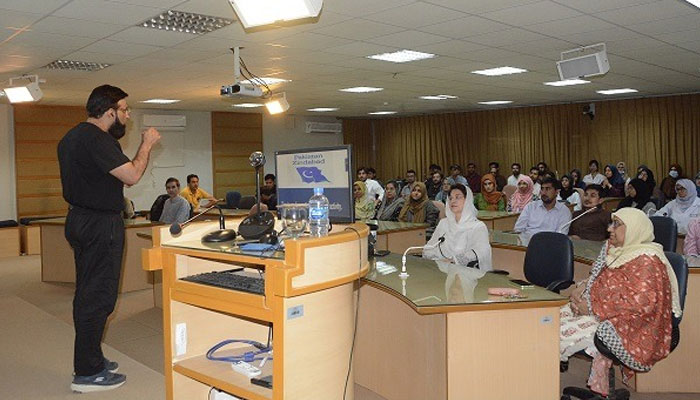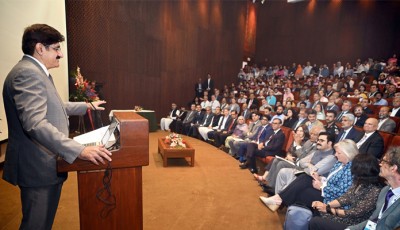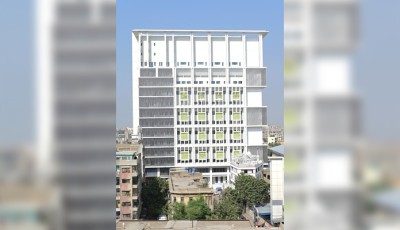KARACHI: A health expert has rejected the myth that exercising during Ramazan is a waste of time, unsafe, or dangerous. He emphasized that everyone should dedicate time to exercise to maintain strength and cardiovascular health during the holy month.
He cautioned against consuming excessive amounts of carbohydrate- and fat-rich foods, particularly at sehri and iftar, and recommended nutritional counseling to help people stay healthy and hydrated during Ramazan. Expressing concern over Pakistan's alarming diabetes rates, he highlighted that the country has the highest prevalence of diabetes in the world.
Prof. Dr. Rehan Umer, Consultant Interventional Cardiologist at the National Medical Center, Karachi, shared these insights while delivering a lecture on “Ramadan & Weight Control” at the L.E.J. National Science Information Center, University of Karachi (UoK).
The session was organized on Wednesday by Dr. Panjwani Center for Molecular Medicine and Drug Research (PCMD), in collaboration with the Sindh Innovation Research and Education Network (SIREN).
Prof. Umer advised citizens to adopt a balanced diet during Ramazan, reinforcing that it is a month of fasting, not feasting. He stressed that nutrition education before Ramazan is vital to modify dietary habits, improve adherence to nutritional guidelines, and achieve weight management goals.
He recommended limiting caffeinated beverages like coffee and tea, as they can cause dehydration and withdrawal headaches. He also encouraged balanced iftar and sehri meals, avoiding excessive sugary foods to maintain stable blood sugar levels.
Prof. Umer urged people to opt for unsaturated fats—found in fish, avocado, nuts, olive oil, and sunflower oil—rather than saturated fats from fatty meats, butter, and ghee. He advised choosing white meat like poultry and fish, which are generally lower in fat, and avoiding processed meats due to their high fat and salt content.
He warned that Pakistan’s rising cardiovascular disease rates, driven by unhealthy lifestyles, result in one death from heart disease every two minutes. However, he noted that active participation in Ramazan can help reduce depression, anxiety, and stress while improving memory and overall mental well-being.











